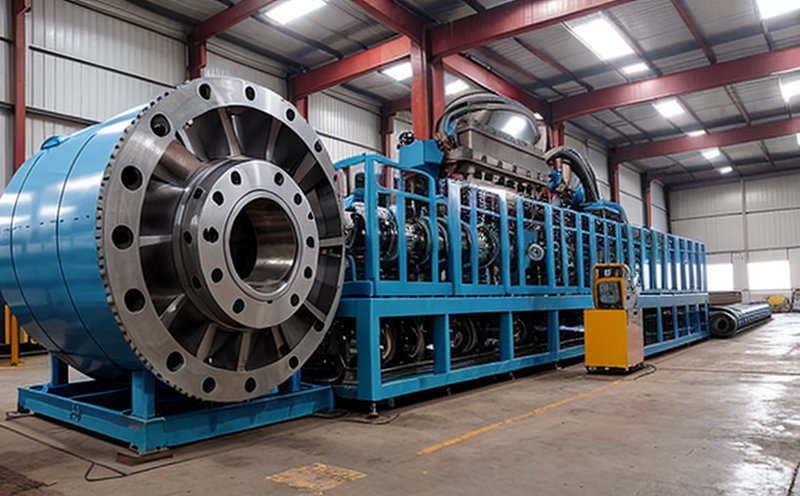Rotating machinery inspection
Rotating machinery inspection is a critical process in ensuring the reliability and longevity of equipment used across various industrial sectors. From manufacturing to power generation, rotating machinery such as turbines, pumps, compressors, and motors form the backbone of many operations. These machines are subject to constant stress from their operational environment and must be inspected regularly to prevent potential failures that could lead to costly downtime and safety hazards.
The inspection process involves a detailed examination of the machine's components to identify any signs of wear or damage. This can include visual inspections, vibration analysis, oil condition monitoring, and more sophisticated methods like ultrasound testing and magnetic particle inspection. The goal is to catch issues early before they escalate into major problems that could disrupt operations.
In industrial settings, rotating machinery inspection plays a crucial role in compliance with international standards such as ISO 19402, which outlines guidelines for the inspection of rotating equipment. Compliance officers must ensure that their facilities adhere to these standards to maintain operational efficiency and safety. Quality managers rely on reliable inspections to make informed decisions about maintenance schedules and necessary upgrades.
For R&D engineers, understanding the performance parameters of different machines is essential in improving design and functionality. Procurement teams need accurate inspection reports to source replacement parts or components that meet specific criteria for durability and performance. By leveraging detailed inspection data, these professionals can optimize their processes and enhance overall equipment reliability.
The importance of rotating machinery inspection cannot be overstated. It ensures not only the safety of workers but also the smooth functioning of critical operations. Regular inspections help in extending the life of machines by preventing minor issues from becoming major ones. This proactive approach to maintenance significantly reduces repair costs and extends operational lifetimes, making it an indispensable part of any industrial strategy.
When selecting a laboratory for rotating machinery inspection, it is crucial to choose one that adheres strictly to relevant standards and employs experienced technicians equipped with the latest technology. At Eurolab, we pride ourselves on offering comprehensive services tailored to meet the specific needs of our clients in this sector. Our team uses advanced tools and methodologies to provide precise and reliable inspection reports that can inform strategic decision-making processes.
Applied Standards
| Standard | Description |
|---|---|
| ISO 19402-1:2018 | Gives guidance on the inspection of rotating equipment in stationary power plants. |
| ASTM E737-18 | Describes procedures for determining the residual life of an electric motor by measuring its vibration frequency spectrum and comparing it to a reference spectrum. |
| EN 14725:2009 | Provides recommendations for the inspection, testing, and monitoring of rotating machinery in power plants. |
| IEC 61800-3:2016 | Details the methods for determining the condition-based maintenance of wind turbines. |
Eurolab Advantages
At Eurolab, we understand the unique challenges faced by industries reliant on rotating machinery. Our comprehensive approach ensures that every aspect of your inspection needs is met with precision and reliability.
- State-of-the-art equipment: Utilize cutting-edge technology to provide accurate and detailed inspection reports.
- Dedicated team: A group of experienced professionals specializing in rotating machinery inspections, ensuring thorough coverage.
- Comprehensive service: Cover all aspects from initial assessment to final report generation.
We offer a full range of services designed to meet the diverse requirements of our clients. Whether you need routine inspections or specialized assessments for complex machines, we have the expertise and resources to deliver exceptional results.
Competitive Advantage and Market Impact
- Accurate diagnostics: Our use of advanced technology allows us to identify issues early, reducing the risk of catastrophic failures.
- Cost-effective solutions: By catching problems before they become severe, we help you avoid costly repairs and replacements.
- Enhanced safety: Ensuring that all machinery operates within safe parameters minimizes risks to personnel and equipment.
- Improved productivity: Regular inspections contribute to continuous operation by preventing unplanned downtime, thereby boosting overall efficiency.
The impact of our services extends beyond individual clients; we play a vital role in fostering safer working environments and more sustainable industrial practices. By adhering strictly to international standards and providing top-tier inspection reports, Eurolab contributes significantly to the reliability and longevity of rotating machinery across various sectors.





